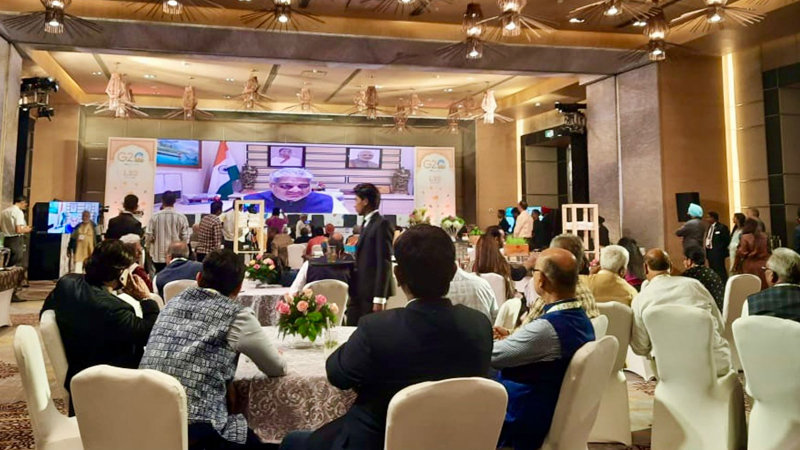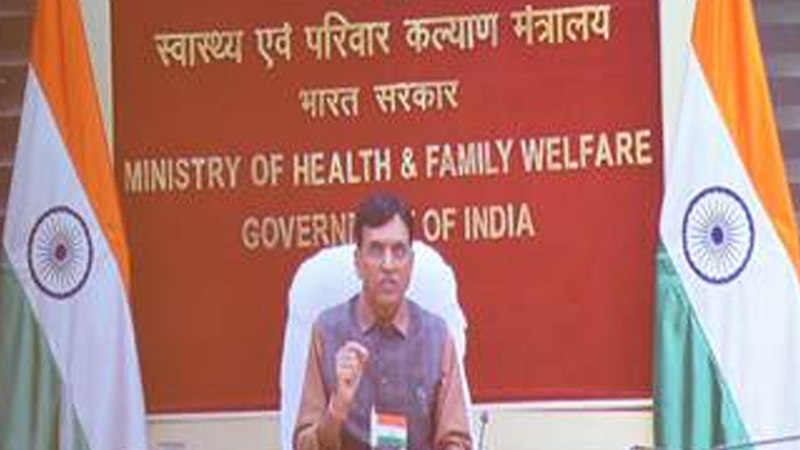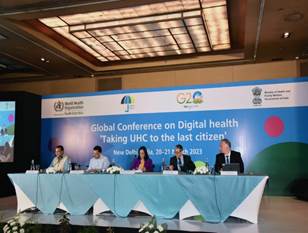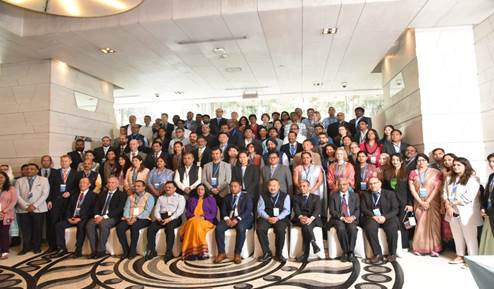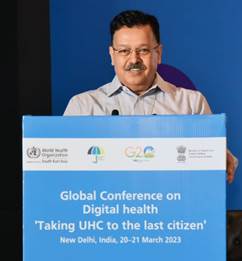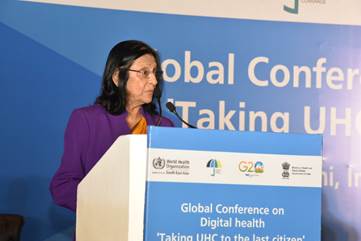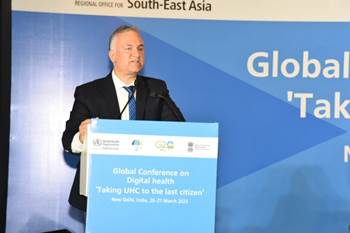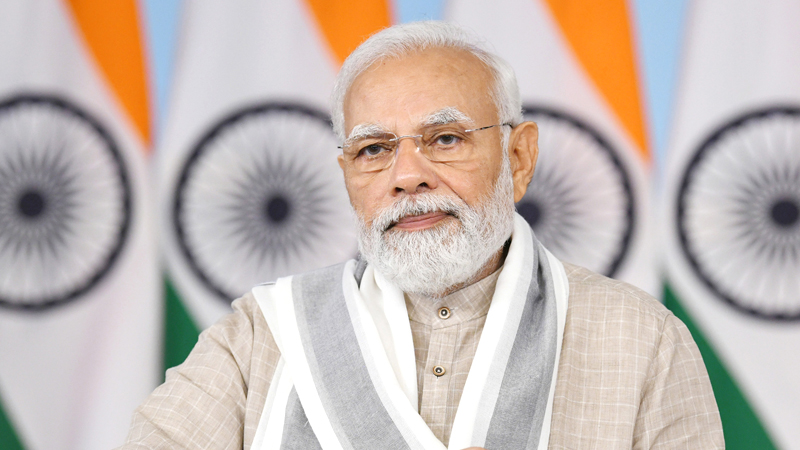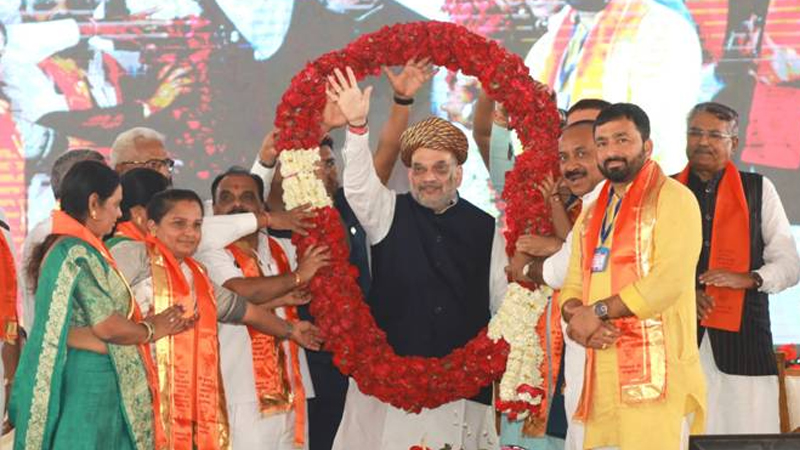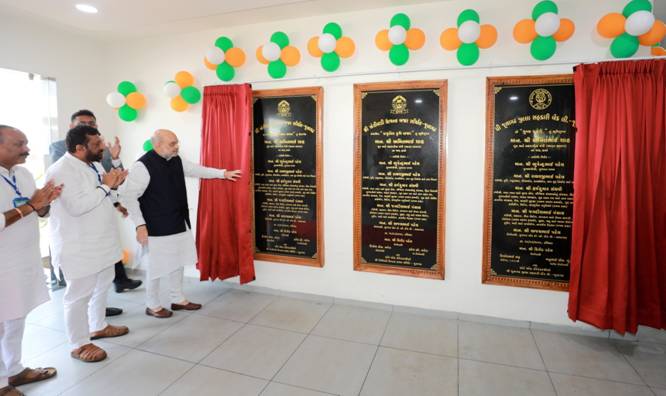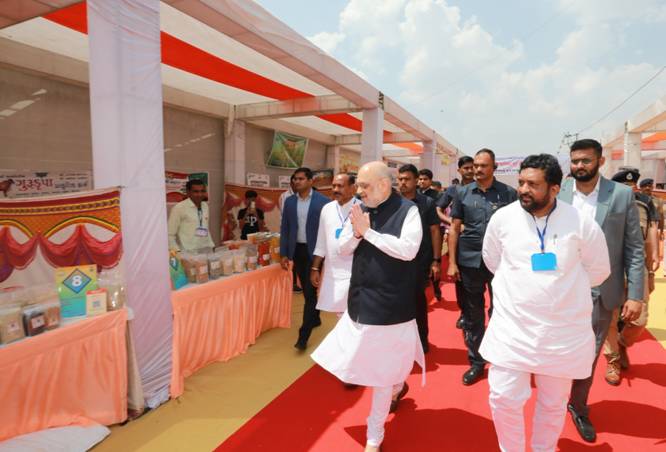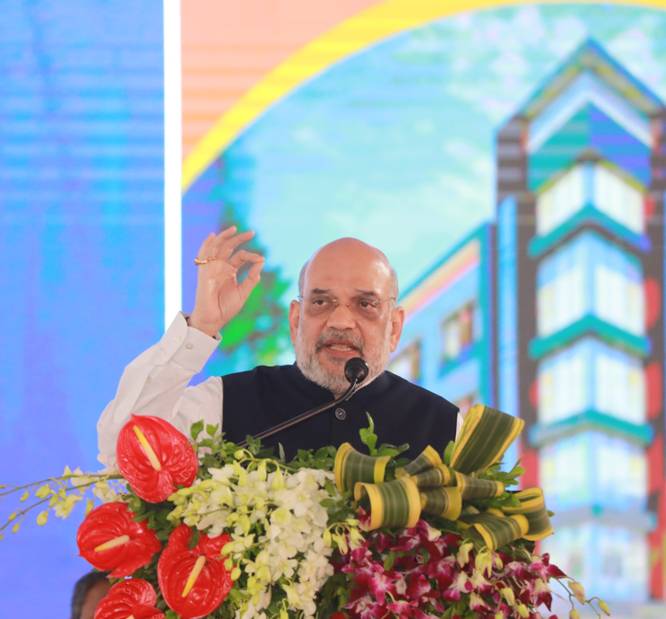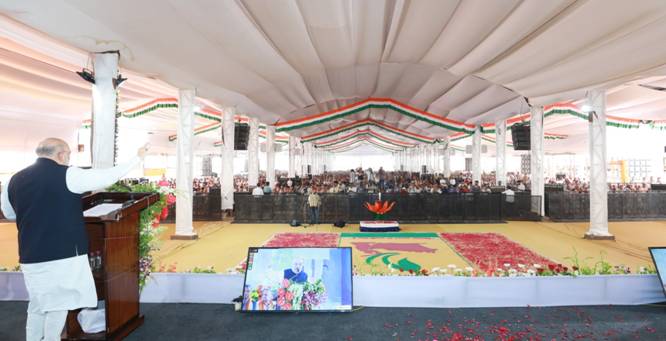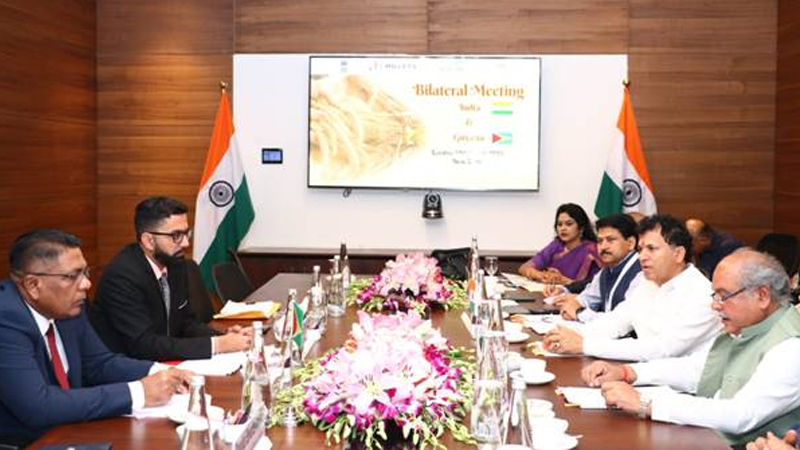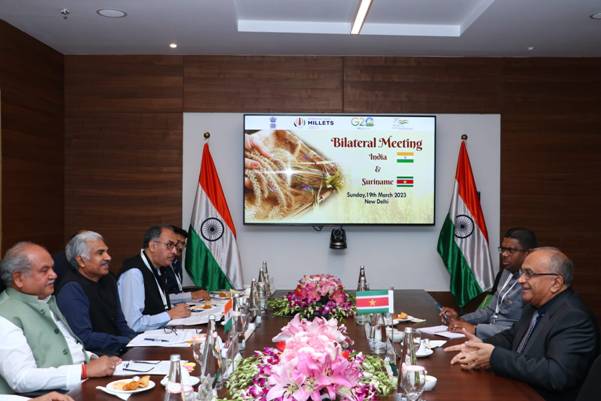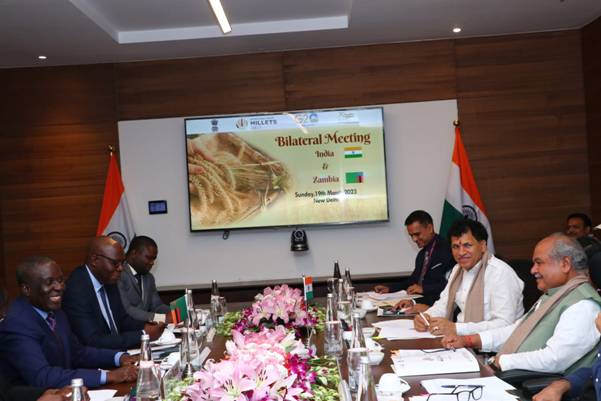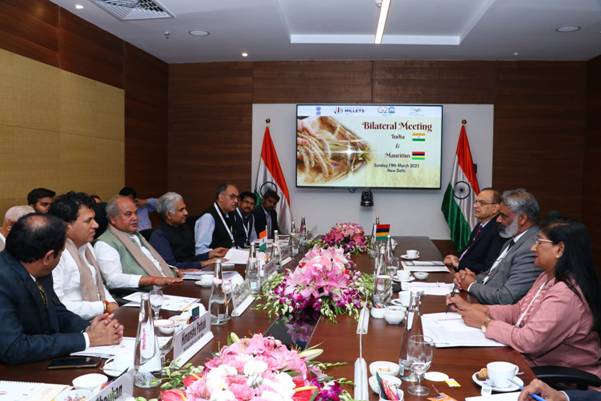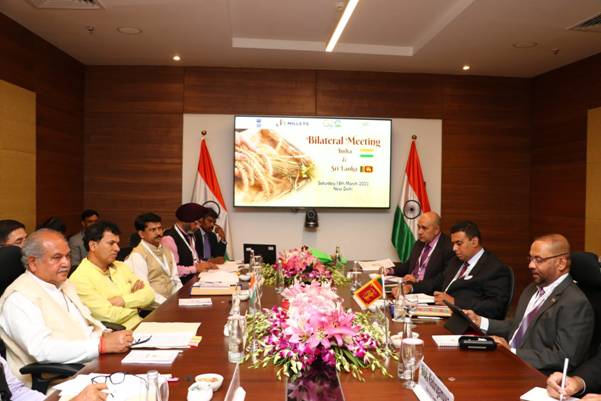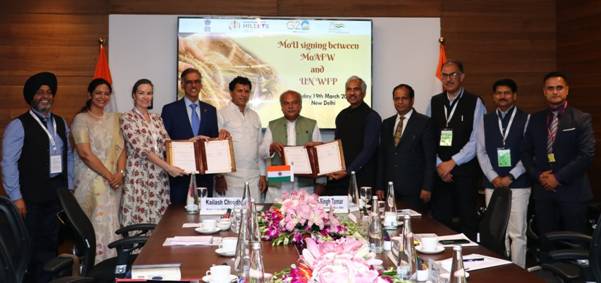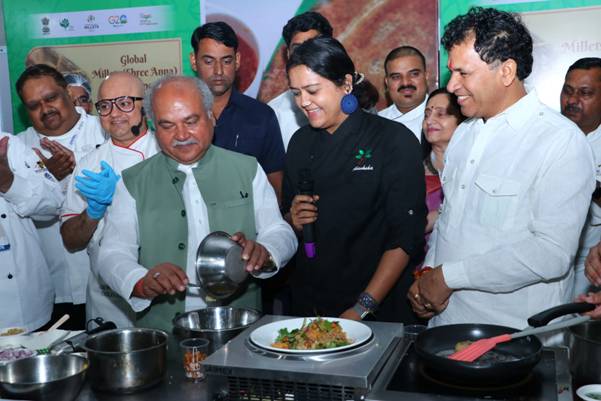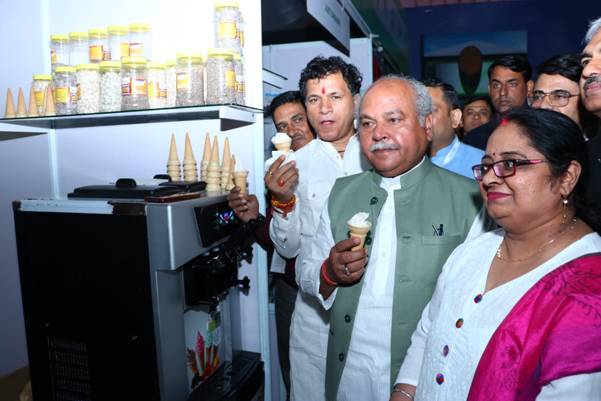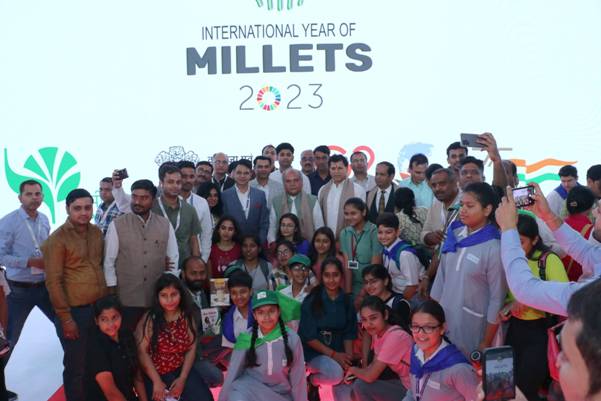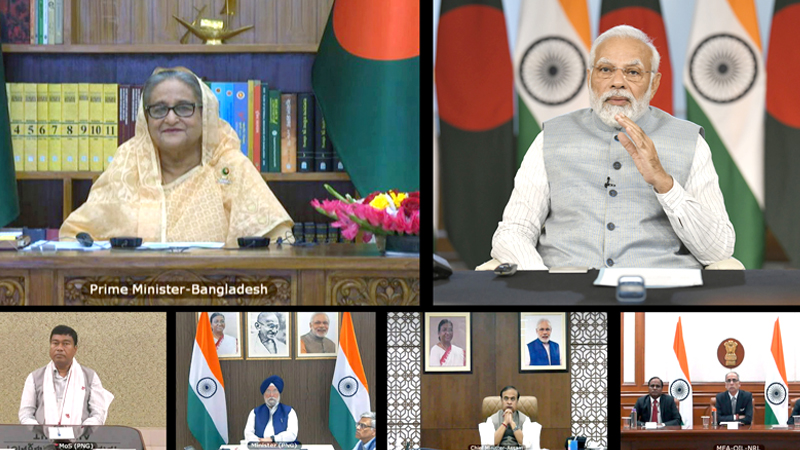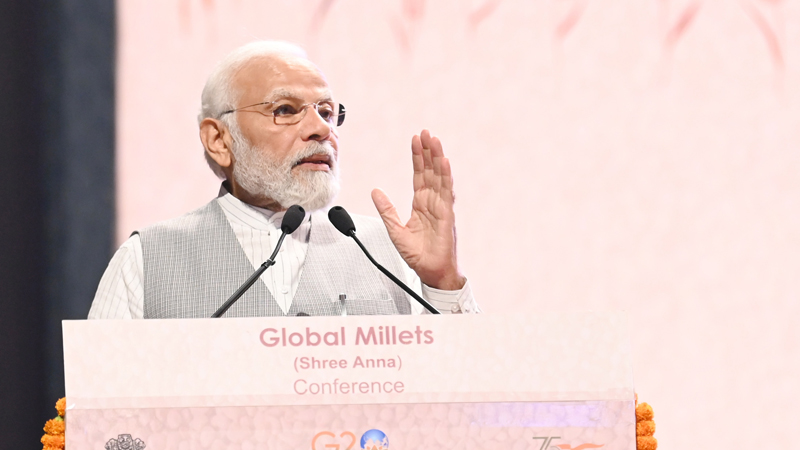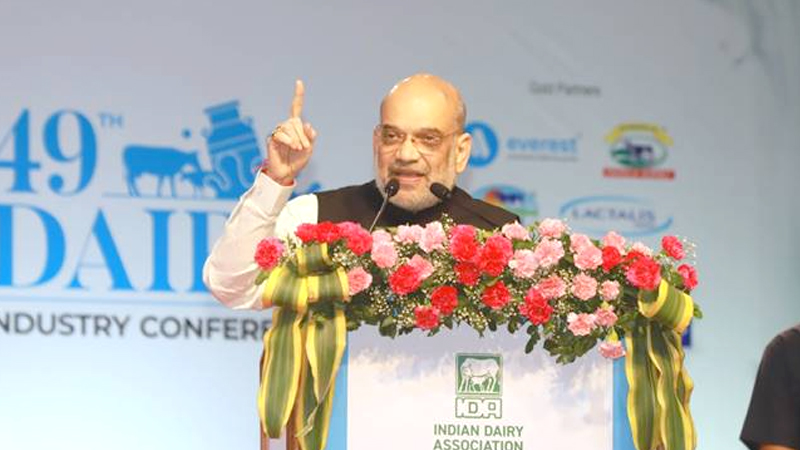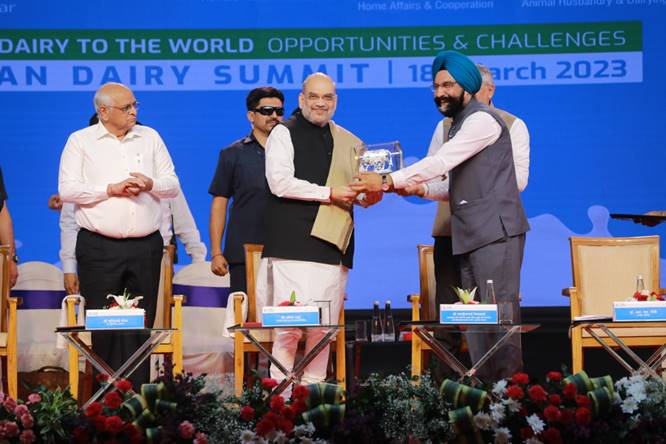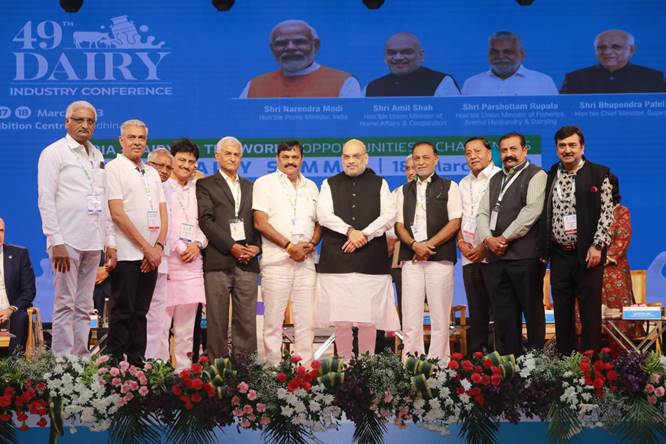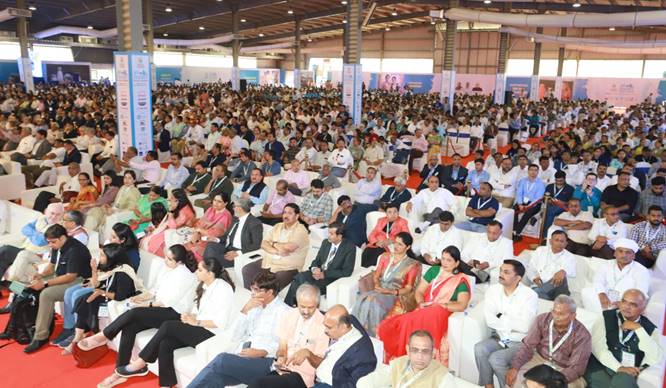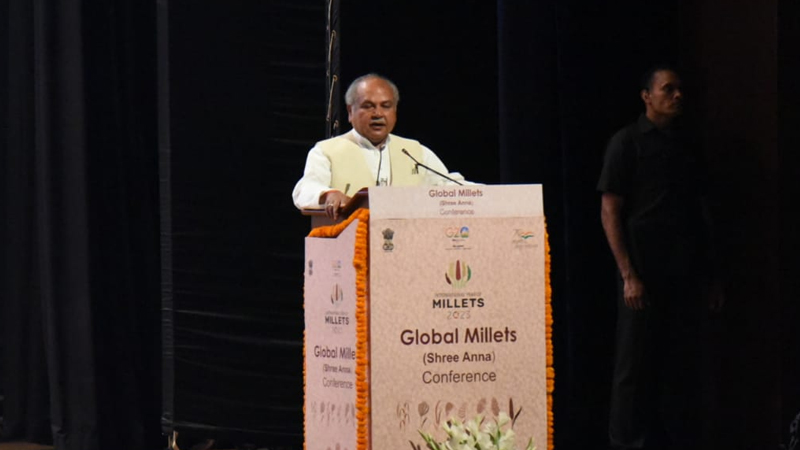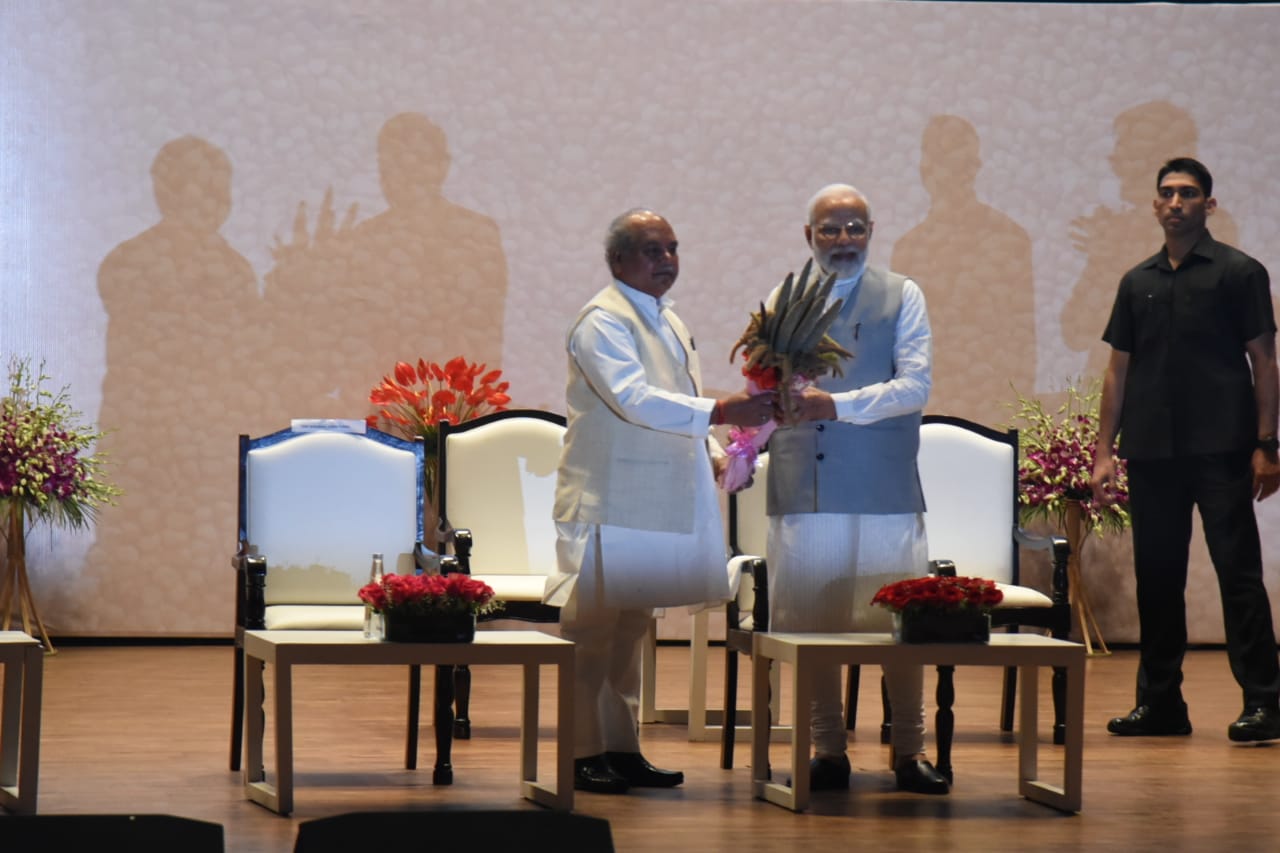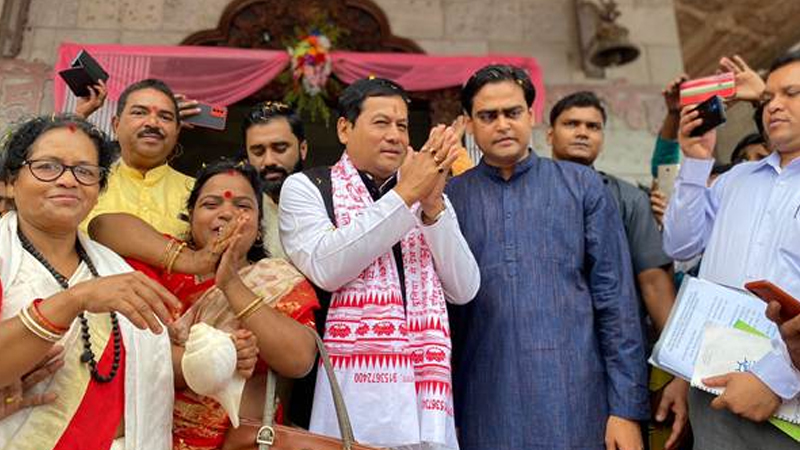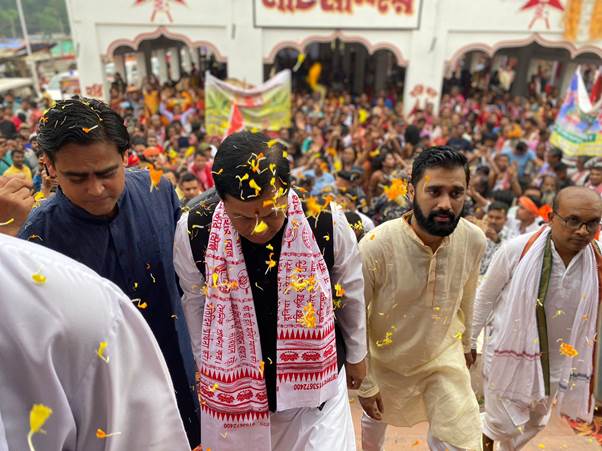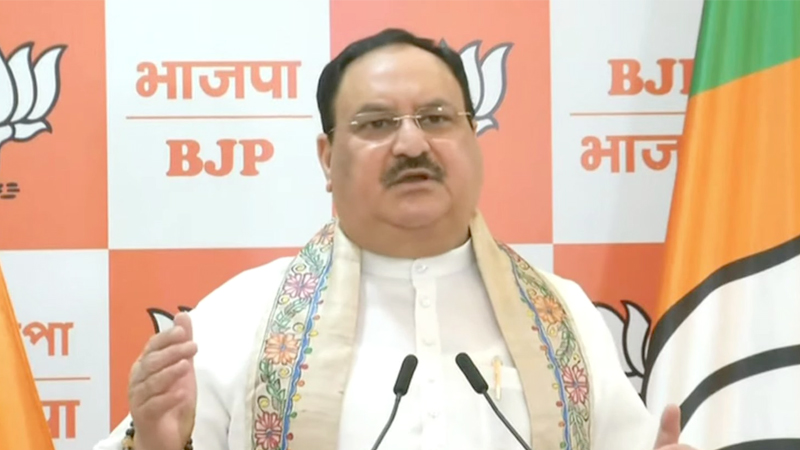The Prime Minister, Shri Narendra Modi inaugurated the Global Millets (Shree Anna) Conference at Subramaniam Hall, NASC Complex, IARI Campus, PUSA New Delhi today. The two-day global conference will have sessions on all important issues related to millets (Shree Anna) like promotion and awareness of millets among producers, consumers and other stakeholders; millets’ value chain development; health and nutritional aspects of millets; market linkages; research and development etc.
The Prime Minister also inaugurated and visited the Exhibition cum Buyer Seller Meet Pavilion. He also unveiled a Commemorative Stamp and Commemorative Coin. This was followed by the Prime Minister digitally launching a compendium of Indian Millet (Shri Anna) startups and a book of millet (Shri Anna) standards.
International leaders conveyed their messages on the occasion. President of Ethiopia, H.E. Sahle-Work Zewde congratulated the Government of India for organizing the event. She said that millets provide an affordable and nutritious option to feed the people in these times. Ethiopia is an important millet-producing country in Sub-Saharan Africa. She underlined the utility of the event for highlighting the policy attention needed for the propagation of millets and studying the suitability of the crops as per their ecosystem.
H.E. Dr Mohamed Irfaan Ali, President of Guyana said that India has assumed global leadership in promoting the cause of millets and in doing so it is placing its expertise for the use of the rest of the world. He said that the success of the International Year of Millets will go a long way in achieving SDGs. Guyana has recognized millets as a key factor in ensuring food security, he informed. Guyana is embarking on a collaboration with India for scalable production of millet by earmarking 200 acres of land for exclusive millet production where India will provide technical guidance and support with technology.
Addressing the gathering, the Prime Minister congratulated everyone on the organisation of the Global Millets Conference and said that such events are not just a necessity for the global good but also a symbol of India’s responsibilities towards the global good. Highlighting the importance of turning a resolution into a desirable outcome, the Prime Minister reiterated that the year 2023 was declared the International Year of Millets by the United Nations after persistent efforts by India. He expressed delight that India’s campaign is a significant step in this direction when the world is celebrating the International Year of Millets. The Prime Minister highlighted that brainstorming sessions will be held on topics such as the farming of millets, millets economy, health benefits, and farmers’ income among others with the active participation of Gram Panchayat, Krishi Kendras, schools, colleges and agricultural universities along with the Indian embassies and several foreign countries. He also informed that more than 75 lakh farmers are virtually connected to this programme today. The Prime Minister also highlighted the unveiling of a commemorative coin and a postal stamp to mark the occasion along with the book launch on millet standards and the declaration of the Indian Institute of Millets Research of ICAR as a Global Centre of Excellence.
The Prime Minister asked the delegates to visit the exhibition at the venue and understand all the dimensions related to millet farming under one roof. He expressed his appreciation for the youth’s initiative to bring startups for millet-related enterprises and farming. “This is an indication of India’s commitment to millets”, he said.
The Prime Minister informed the foreign delegates about India’s branding initiatives for millets as India now calls millets – Shree Anna. He elaborated that Shri Anna is not limited to just food or farming. Those acquainted with Indian tradition will understand the importance of prefixing Shree before anything. “Shree Anna is becoming a medium of holistic development in India. It is linked with Gaon as well as Garib (Village and the poor)”. Shree Anna- a door to prosperity for the small farmers of the country, Shree Anna – the cornerstone of nutrition for crores of countrymen, Shree Anna – felicitation of Adivasi Community, Shree Anna- getting more crops for less water, Shree Anna – a big foundation for chemical-free farming., Shree Anna – a huge help in fighting climate change,” he added.
Underlining the consistent efforts of the government to turn Shree Anna into a global movement, the Prime Minister informed that millets were declared nutri-cereals in 2018 where work was carried out on all levels from making the farmers aware of its benefits to generating interest in the market. The Prime Minister noted that millets are primarily cultivated in 12-13 different states in the country where at-home consumption per month per person was not more than 3 kilograms whereas the consumption has increased to 14 kilograms per month today. He also informed that the sale of millet food products has also seen a boost of roughly 30%. He also noted the inception of millet cafes apart from social media channels dedicated to recipes on millets. “Millets have also been selected in 19 districts of the country under the ‘One District, One Product’ scheme”, Shri Modi added.
Informing that about 2.5 crore small farmers are directly involved in the production of millets in India, the Prime Minister noted that they faced the challenges of climate change even though they own very little land. “India’s Millet Mission – The campaign for Shri Anna will prove to be a boon for 2.5 crore farmers of the country”, the Prime Minister said. He pointed out that it is the first time after independence that the government has taken care of 2.5 crore small farmers who grow millets. Noting that millets are now reaching stores and markets through processed and packaged food items, the Prime Minister underlined that the income of these 2.5 crore small farmers will increase when the Shree Anna market gets a boost, thereby giving strength to the rural economy. The Prime Minister informed that more than 500 startups working on Shree Anna have come up and a large number of FPOs are also coming forward in the last few years. He also pointed out that a complete supply chain is being developed in the country where women from self-help groups in small villages are making millet products that are making their way into malls and supermarkets.
Highlighting India’s motto of One Earth, One Family, One Future for the G-20 Presidency, the Prime Minister underlined that considering the whole world as one family is also reflected in the International Millet Year. “India has always given priority towards the feeling of duty towards the world and the resolve to serve humanity”, the Prime Minister said. Giving the example of Yoga, the Prime Minister said that India has ensured that the benefits of Yoga reach the whole world through International Yoga Day. He expressed delight that today yoga is being promoted in more than 100 countries of the world and more than 30 countries in the world have given recognition to Ayurveda as well. He also threw light on the International Solar Alliance and said that it is working as an effective platform for building a sustainable planet where more than 100 countries have joined the movement. “Be it leading the LiFE mission or achieving climate change goals ahead of schedule, India draws inspiration from its heritage, drives change in society, and brings it to the fore of global well-being”, the Prime Minister remarked as he noted that a similar impact can be witnessed in India’s ‘Millet Movement’ today. Giving examples of Shree Anna such as Jowar, Bajra, Ragi, Sama, Kangni, Cheena, Kodon, Kutki, and Kuttu that are prevalent in different regions of India, the Prime Minister said that millets have been a part of the lifestyle in India for centuries. The Prime Minister emphasized that India wants to share its agricultural practices and its experiences related to Shree Anna with the world while also learning from other countries. He specially requested the Agriculture Ministers of the friendly nations present here to develop a stable mechanism in this direction and emphasized that a new supply chain should be developed with shared responsibilities from field to market and from one country to another.
The Prime Minister also highlighted the climate resilience of millets and informed that they can be easily produced even in adverse climatic conditions. He informed that it is a preferred crop for water-stressed areas as it requires relatively less water to produce. He also noted that millets can be grown naturally without chemicals and thereby safeguards the health of both humans and the soil.
Touching upon the food security challenges faced in the world of today, the Prime Minister highlighted the challenge of food security for the poor in the Global South and diseases linked to food habits in the Global North. “On one hand we have the problem of food security, and on the other hand the problem of food habits”, he said as he pointed out the concerns about heavy use of chemicals in the produce. The Prime Minister remarked that Shree Anna provides solutions to every such problem as it is easy to grow, its cost is also less in this, and it gets ready for cultivation faster than other crops. The Prime Minister listed the benefits of Shree Anna and said that it is rich in nutrition, special in taste, high in fibre content, very beneficial for the body and health, and helps in preventing lifestyle-related diseases.
“Millets bring with them endless possibilities”, the Prime Minister remarked. Informing that the contribution of Shree Anna to the national food basket in India is only 5-6 percent, the Prime Minister urged the scientists and experts in the agriculture sector to work towards increasing this contribution and suggested setting achievable targets for every year. He also noted that the country has also started a PLI scheme to give a boost to the food processing sector. The Prime Minister emphasized the need to ensure that the millet sector gets maximum benefit from it, and more companies come forward to make millet products. He also added that many states have included Shree Anna in their PDS system and suggested that other states follow suit. He also suggested including Shree Anna in the mid-day meal so that children can get proper nutrition while also adding a new taste and variety to the food.
Concluding the address, the Prime Minister expressed confidence that all these issues will be discussed in detail and a roadmap will also be prepared for implementation. “With the joint efforts of the farmers and all stakeholders, food will add a new shine to the prosperity of India and the world”, the Prime Minister concluded.
Union Minister for Agriculture and Farmers’ Welfare, Shri Narendra Singh Tomar, Union Minister for External Affairs, Dr Subrahmanyam Jaishankar, Union Minister for Health and Family Welfare, Dr Mansukh Mandaviya, Union Minister for Commerce and Industry, Shri Piyush Goyal and Union Ministers of State for Agriculture and Farmers’ Welfare, Shri Kailash Choudhary and Ms Shobha Karandlaje were present on the occasion among others.
Background
Based on India’s proposal, the year 2023 was declared the International Year of Millets (IYM) by the United Nations General Assembly (UNGA). In line with the Prime Minister’s vision to make the celebrations of IYM 2023 a ‘people’s movement’ and position India as the ‘global hub for millets’, all central government ministries/departments, states/UTs, farmers, start-ups, exporters, retail businesses and other stakeholders are being engaged to promote and spread awareness about the benefits of millets (Shree Anna) for the cultivator, consumer and climate. The organization of the Global Millets (Shree Anna) Conference in India is an important programme in this context.
The two-day global conference will have sessions on all important issues related to millets (Shree Anna) like promotion and awareness of millets among producers, consumers and other stakeholders; millets’ value chain development; health and nutritional aspects of millets; market linkages; research and development etc. The conference will be attended by Agriculture Ministers of various countries, international scientists, nutritionists, health experts, start-up leaders and other stakeholders.


